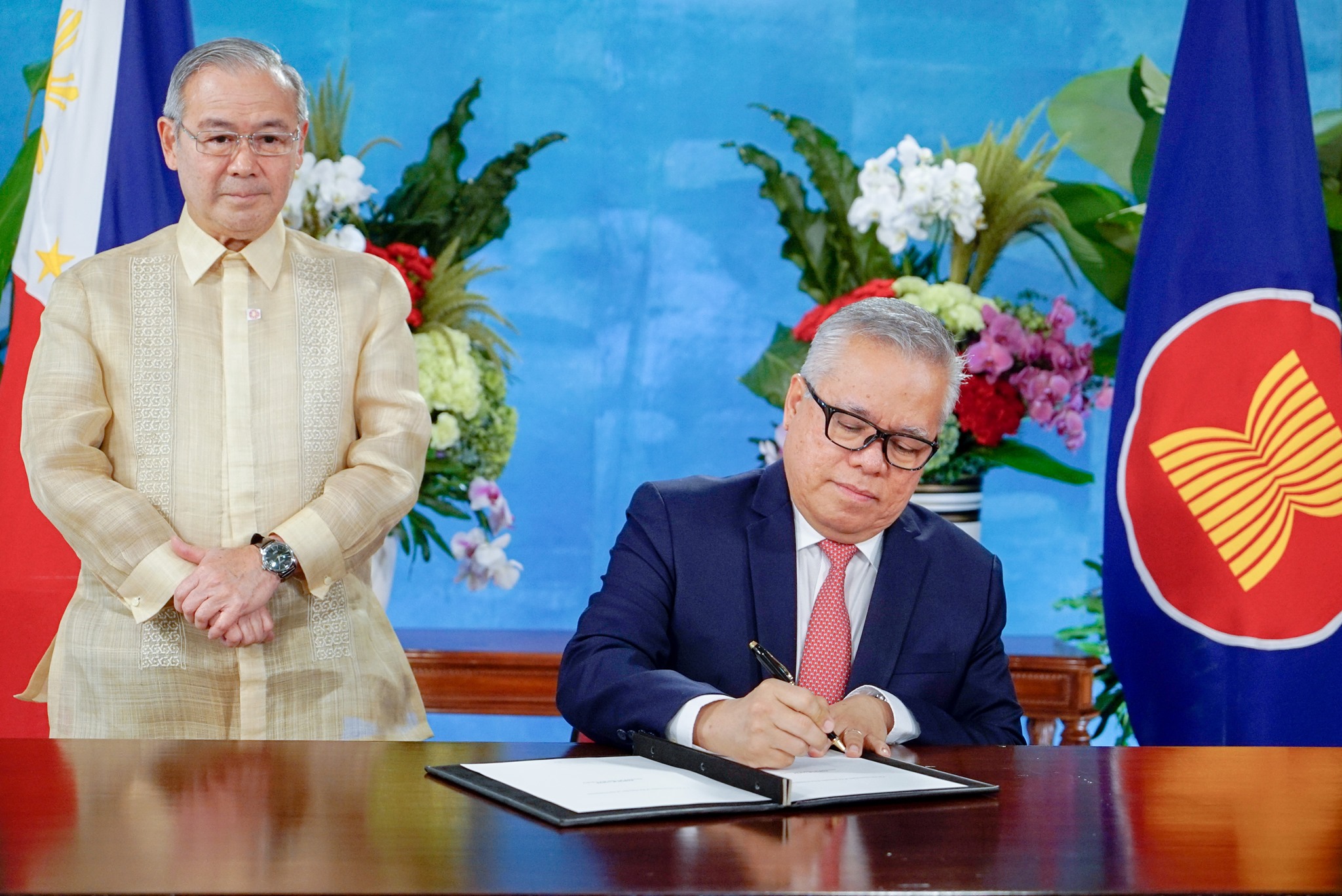Business and Economy
RCEP trade ministers sign free trade deal Sunday

Department of Trade and Industry (DTI) Secretary Ramon M. Lopez joined the Trade Ministers from the Member States of the Association of Southeast Asian Nations (ASEAN) and its five trade partners—Australia, China, Japan, Korea, and New Zealand—in signing the Regional Comprehensive Economic Partnership (RCEP) Agreement. (Photo: DTI Secretary Ramon M. Lopez/Facebook)
MANILA – Department of Trade and Industry (DTI) Secretary Ramon Lopez bared that trade ministers of Regional Comprehensive Economic Partnership (RCEP) participating countries will sign the free trade deal on Sunday.
“RCEP is set to be signed by trade ministers on Sunday during the Asean Summit, with presence of leaders and heads of state,” Lopez told reporters Saturday.
Early this year, the trade minister from 10 member states of Association of Southeast Asian Nations (Asean) and its five free trade agreement (FTA) partners — Australia, New Zealand, China, Japan, and South Korea vowed to conclude the RCEP deal amid the pandemic.
India was part of RCEP before its Prime Minister Narendra Modi announced last year that the country is backing out from the deal.
“Although there are important long-term trade benefits that India would gain from joining RCEP and having improved market access to most of the major economies in the Asia-Pacific region, their immediate concern is that rapidly dismantling trade barriers will hurt India’s industries, notably in manufacturing,” IHS Markit chief economist for Asia-Pacific Rajiv Biswas told the Philippines News Agency in an e-mail.
Biswas added that that despite the withdrawal of the South Asian nation in RCEP, trade between Asean and India can be boosted through Asean-India trade liberalization initiatives.
On the other note, there are ongoing tensions between India and RCEP participating country China.
“A key concern that India has with the RCEP deal is that it would open up the Indian market to severe competition from lower cost Chinese manufacturing exports. Therefore, taking a bilateral approach to trade liberalization with the other RCEP members, including Asean, Japan, Australia and South Korea may be India’s preferred approach to trade liberalization, at least in the near to medium term outlook,” Biswas said.
Asean initiated RCEP in 2012.
Participating countries have been targeting to conclude the deal since the Philippines’ hosting of Asean Summit in 2017.
RCEP covers one-third of the world’s population and one-third of global gross domestic product and export market.
“This then offers wider market opportunities for our exporters and service providers. RCEP countries account for more than 50 percent of our export market. RCEP has improved levels of market access among each other, but still respects exclusion list for sensitive products mostly for agriculture products,” Lopez said.
He described the scope of RCEP as “more modern” and a “high quality FTA” as this include economic technical topics such as micro, small and medium enterprises, intellectual property, e-commerce, trade access, and other topics in trade in products and services, as well as investments.
“The RCEP is a product of eight-year negotiation and this has been cleared by our inter agency Committees at the NEDA Board Cabinet Committee on Trade and related Matters,” the DTI chief noted.





















